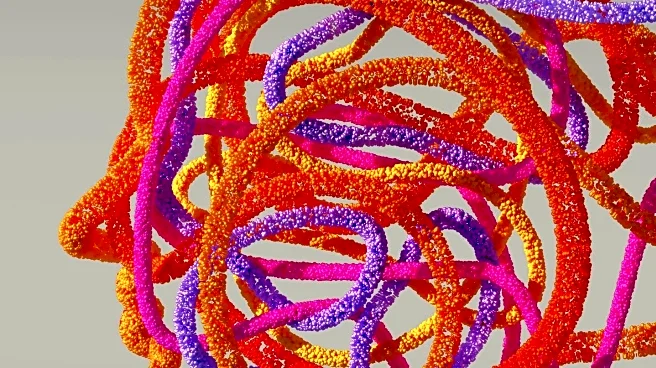What's Happening?
Researchers at the University Hospital of Cologne, Germany, have discovered a new antibody, named 04_A06, that shows promise in preventing HIV infections and neutralizing the virus. The antibody blocks
a site where the virus binds to cells, preventing it from entering and reprogramming them to reproduce the virus. This discovery comes ahead of the 2025 European AIDS Conference and has raised hopes for a new weapon in the fight against HIV. The research team tested over 800 antibodies from blood samples of individuals infected with HIV, identifying 04_A06 as particularly effective. In experiments, the antibody neutralized 98% of tested HIV variants, including those resistant to other antibodies.
Why It's Important?
The discovery of the 04_A06 antibody is significant as it offers a potential new method for both treating and preventing HIV infections. With HIV/AIDS having caused 44 million deaths since its detection, advancements in treatment are crucial. The antibody could act as a passive immunization, intercepting the virus before it infects cells, which is a promising alternative to current treatments. This could lead to a reduction in the need for daily medication and offer a more effective prophylactic measure against HIV. The potential for this antibody to be developed into a drug could transform HIV treatment and prevention strategies.
What's Next?
Further studies are needed to determine the dosage, tolerance, and efficacy of the 04_A06 antibody in clinical settings. While the laboratory results are promising, real-life effectiveness must be established through clinical trials. Researchers are also exploring the possibility of using mRNA technology to develop an HIV vaccine, which could stimulate the body's own production of antibodies. The development of the 04_A06 antibody into a drug could take time, but the promising signs suggest it could become a key component in future HIV treatment protocols.
Beyond the Headlines
The ethical implications of developing a new HIV treatment are significant, as it could improve access to effective care for millions worldwide. The discovery also highlights the importance of continued research and innovation in combating global health challenges. Long-term, the success of this antibody could lead to shifts in public health policy and funding priorities, emphasizing the need for investment in cutting-edge medical research.









